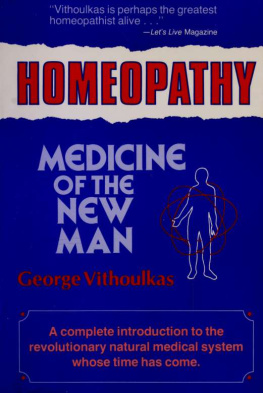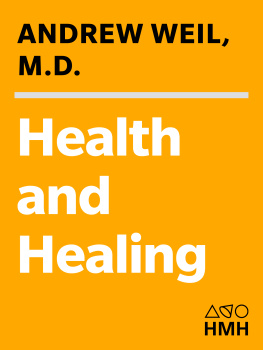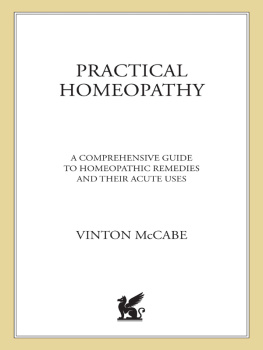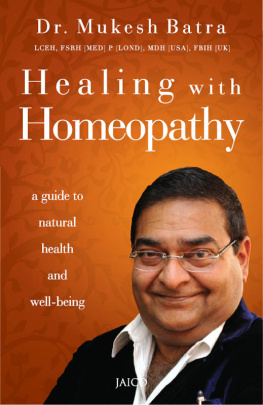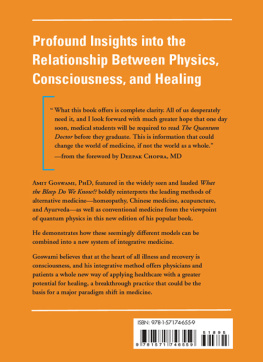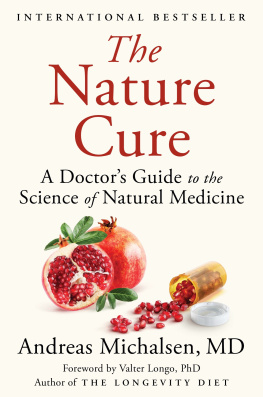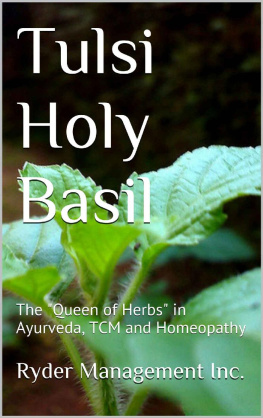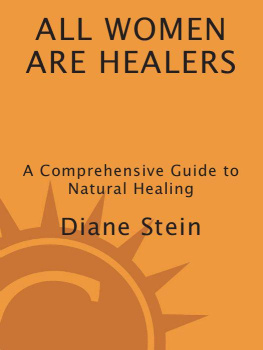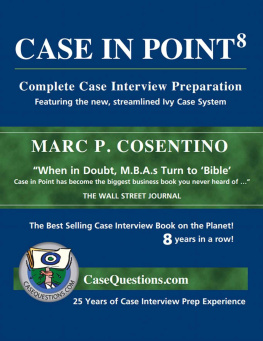Vithoulkas - Homeopathy: medicine of the new man
Here you can read online Vithoulkas - Homeopathy: medicine of the new man full text of the book (entire story) in english for free. Download pdf and epub, get meaning, cover and reviews about this ebook. year: 1979, publisher: New York : Arco Pub. Co., genre: Science. Description of the work, (preface) as well as reviews are available. Best literature library LitArk.com created for fans of good reading and offers a wide selection of genres:
Romance novel
Science fiction
Adventure
Detective
Science
History
Home and family
Prose
Art
Politics
Computer
Non-fiction
Religion
Business
Children
Humor
Choose a favorite category and find really read worthwhile books. Enjoy immersion in the world of imagination, feel the emotions of the characters or learn something new for yourself, make an fascinating discovery.
- Book:Homeopathy: medicine of the new man
- Author:
- Publisher:New York : Arco Pub. Co.
- Genre:
- Year:1979
- Rating:5 / 5
- Favourites:Add to favourites
- Your mark:
- 100
- 1
- 2
- 3
- 4
- 5
Homeopathy: medicine of the new man: summary, description and annotation
We offer to read an annotation, description, summary or preface (depends on what the author of the book "Homeopathy: medicine of the new man" wrote himself). If you haven't found the necessary information about the book — write in the comments, we will try to find it.
Homeopathy: medicine of the new man — read online for free the complete book (whole text) full work
Below is the text of the book, divided by pages. System saving the place of the last page read, allows you to conveniently read the book "Homeopathy: medicine of the new man" online for free, without having to search again every time where you left off. Put a bookmark, and you can go to the page where you finished reading at any time.
Font size:
Interval:
Bookmark:

This book made available by the Internet Archive.





I
Foreword
We are living in one of the most exciting periods in human history. Virtually every aspect of human life is undergoing radical conceptual changescience, politics, economics, ecology, theater, music, etc. Such change even extends to the field of medicine. The objectified, materialistic view of the world is widening to include the energetic plane of existence. The concept of the whole man is replacing the previously fragmented view of the patient as a diagnostic entity. In the fields of holistic health, nutrition, acupuncture, etc., increasing trust is being placed on the healing forces of the individual, rather than on drugs.
This book by George Vithoulkas represents the cutting edge of this movement in the field of medicine. Step by step, it takes us through uncanny discoveries which have led to the most effective curative system known to mankind. In contrast to the somewhat vague mysticism which inevitably characterizes the early, stumbling steps towards true holistic medicine, Vithoulkas' book demonstrates convincingly that homeopathy is a systematic science which correctly applies the laws of nature to stimulate the healing energies of the human being.
The respect that I have for the work of Vithoulkas can best be illustrated by briefly describing my own story. From a young age, enamored of the "white coat" image of medicine, I decided to become a doctor. I finally succeeded, graduating from Stanford Medical School, where I was steeped in the most solidly materialistic of medical science.
After completing my training, I contemplated going into private practice, but my idealistic image of what medicine should be left me disappointed and frustrated with what I had learned. I turned to the holistic fields of nutrition, herbal medicine, acupuncture, chiropractics, and polarity massage, but nowhere could I find a method that was systematic enough to deal with the deep chronic diseases which are the challenge of every physician. Finally, I received training in homeopathy and opened a private practice in Northern California.
The results I received through homeopathy were gratifying, but there were still many, many cases which I myself knew I had inadequate knowledge to treat. It was at this time that I met George Vithoulkas. His analysis of some of my cases taught me quickly that in the hands of a true Master, homeopathy holds the answer for the vast majority of chronic disease sufferers.
The degree of respect I developed for Vithoulkas' knowledge of homeopathy is best measured by the fact that I finally closed my practice in California and left my own teaching responsibilities in order to study with him full-time in Athens, Greece. I have never regretted this decision, for it has brought about the possibility of my delivering the precise, natural cure to my patients which is the goal of every conscientious physician the world over.
It may seem too good to be true, but humankind's centuries of searching for a non-toxic, truly curative medi
cine have finally come to completion in the homeopathic system. The challenge we now face is to create a professional school in which the highest standard of homeopathic medicine can be taught with the dedicated strictness which is necessary.
In this landmark work, George Vithoulkas convincingly and concisely describes the basic foundations upon which this seemingly miraculous method is built.
Bill Gray, M.D.
Coming of the New Age
In recent years, a profound revolution in thinking about health and disease has emerged. Beginning with a thoughtful and well-informed public seeking more effective means of dealing with chronic diseases, it has come to influence the medical profession itself as well as policy-makers in government.
It is difficult to trace exactly where the roots of this line of thinking began in modern times. Historically, it stretches back to Hippocrates and before, but with the advent of technology and the strictly materialistic world-view, it became lost for a time. Its resurgence has been influenced by the growth of psychology, the Esalen-inspired view of the whole man, the re-awakening of spiritual and mystical consciousness, and even the awareness of ecology. It is a revolution inspired by the high level of education achieved in modern times.
Arising from this trend are a variety of clinics, classes, seminars, publications, and businesses loosely described as the "holistic health" movement. The basic concept is that each of us is an integrated whole. We are not fragmented into separate parts each carrying a specific ailment or
diagnostic category. We cannot be divided by any belief, lifestyle, relationship, or therapy without violating fundamental universal laws. Each of us is a unique individual, whole and complete, functioning as a totality in relation to the universe surrounding us. All states of health or disease must be viewed in this context. To the extent that we deviate from this perspective, we experience disharmony and disease. Conversely, the more we live within this principle, the more we enjoy a balanced state of harmony and vitality.
A second basic tenet of the holistic approach is that the most effective, indeed the only, way to cure illness is to increase the health of the afflicted person. There is a fundamental recognition that all living beings are animated by a "vital force" (to be discussed in considerable detail later) which when disturbed leads to sickness, and when activated leads to health. This force (called by the Chinese "Chi," and the Hindus "prana") has yet to be scientifically isolated, observed, or measured, but each of us is aware of it working within us.
We all have made the observation that some of our friends enjoy a higher degree of vitality than others. Each of us experiences fluctuations in energy from hour to hour and day to day; we tend to ascribe these changes to stresses, diet, sleep, etc. But, whatever the apparent "cause," the experience is one of increasing or decreasing vital energy.
A holistic practitioner, then, helps the "client" to identify the various aspects of his life which tend to enhance the natural processes, and which aspects tend to oppose them. Thus, the primary responsibility for the recovery of his health is placed upon the shoulders of the client himself.
In this context, symptoms are seen as attempts by the body to heal or to signal distress, and they are respected
as suchin marked contrast to the standard medical approach in which symptoms are viewed as disturbances to be suppressed.
Let me discuss some o the principal holistic practices in order to clarify the setting in which homeopathy is to be seen.
The first holistic approach to gain widespread approval by public common sense was nutrition. First popularized by author Adelle Davis in the 1950s, good nutrition was quickly recognized as being fundamental to proper health. As awareness of the necessity for a proper balance of nutrients grew, the public began consulting their doctors for advice on diet and vitaminsonly to discover that they knew more in this area than their physicians and that no medical school in the United States taught nutrition. This was the first major step in the gradual dissolution of the mystique surrounding medicine.
Font size:
Interval:
Bookmark:
Similar books «Homeopathy: medicine of the new man»
Look at similar books to Homeopathy: medicine of the new man. We have selected literature similar in name and meaning in the hope of providing readers with more options to find new, interesting, not yet read works.
Discussion, reviews of the book Homeopathy: medicine of the new man and just readers' own opinions. Leave your comments, write what you think about the work, its meaning or the main characters. Specify what exactly you liked and what you didn't like, and why you think so.

